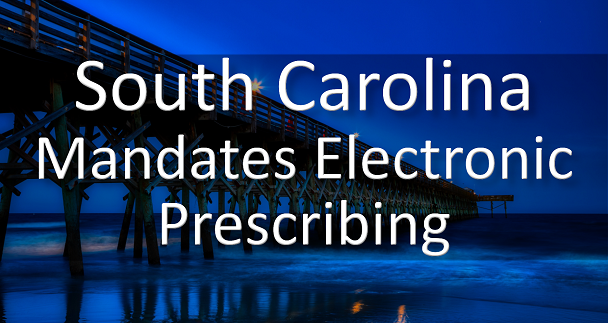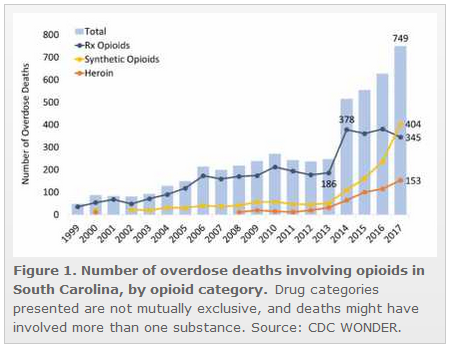Posted by MDToolbox
on
• Comments
(0)

South Carolina Governor Henry McMaster recently signed HB3728 into law. This was a bipartisan bill that was amended a few times during the legislative process. This Act mandates South Carolina healthcare providers to electronically prescribe all controlled substance medications with an effective date of January 1st, 2021.
Other subsections of the Act include:
- The Act requires healthcare facilities and first responders who have diagnosed an opioid overdose to submit data to the state PMP (Prescription Monitoring Program) for each instance that an opioid antidote was administered to a patient. This data will then be analyzed by the Bureau of Drug Control.
- The State PMP must be consulted when prescribing a Schedule II controlled substance and must be documented in the patient’s chart that the PMP was consulted.
- The Act makes dispensers immune from civil and criminal liability from the State Board of Pharmacy over dispensing prescriptions that potentially violate the laws established in the Act. If a prescription is sent to the pharmacy in a non-electronic format, this section puts the responsibility on the prescriber to ensure that a valid exceptional circumstance (detailed in the bill) was utilized.

South Carolina is currently above the national average for opioid-related overdose deaths, with 15.5 deaths per 100,000 people in 2017 while the national average was 14.6 deaths. Prescription opioid overdose rates rose steadily from 1999 to 2013, then more than doubled between 2013 and 2014. Opioid overdose rates have remained stable since 2014. Heroin and synthetic opioid deaths have risen since 2013, with synthetic opioids skyrocketing higher than the national average. Synthetic opioid deaths are almost ten times what they were in 2013. In 2015, South Carolina had one of the highest rates of opioid prescribing in the US, 109 prescriptions for every 100 people. This number was reduced drastically in 2017 to 79.3 prescriptions but is still well above the national average of 58.7.[1]
In 2015, South Carolina passed the South Carolina Overdose Prevention Act which raised public awareness for the severity of the opioid epidemic in South Carolina and outlined legislation for the administration of opioid antidotes during an overdose. The law provided immunity from legal prosecution for any medical providers, caregivers, or pharmacists involved in dispensing or administering an opioid antidote. South Carolina then established the Law Enforcement Officer Naloxone (LEON) program which focused on training and education for law enforcement first responders to identify and treat opioid drug overdoses. In 2018, South Carolina passed S918 which established a report card for prescribers. The report card pulls data about controlled substances that the practitioner has prescribed and compares their statistics to other prescribers.
South Carolina currently has a 21.4% prescriber enablement for electronic prescribing of controlled substances, which is well below the national average of 35.4%. Pharmacy enablement for EPCS is 95.8% which is just above the national average for pharmacy enablement is 95.4%.[2] There will likely be a big push leading up to 2021 to secure electronic prescribing, MDToolbox encourages providers not to wait!
South Carolina now aligns with several other states mandating electronic prescribing. MDToolbox looks forward to working with providers throughout South Carolina to ease the transition and help provide tools and resources in combating the opioid epidemic. With MDToolbox providers have access to tools such as Electronic Prescribing of Controlled Substances (EPCS) and convenient on the go mobile e-prescribing. Contact us for more information or to start your free 30 day free trial.
[1]https://www.drugabuse.gov/opioid-summaries-by-state/south-carolina-opioid-summary
[2]https://surescripts.com/enhance-prescribing/e-prescribing/e-prescribing-for-controlled-substances/